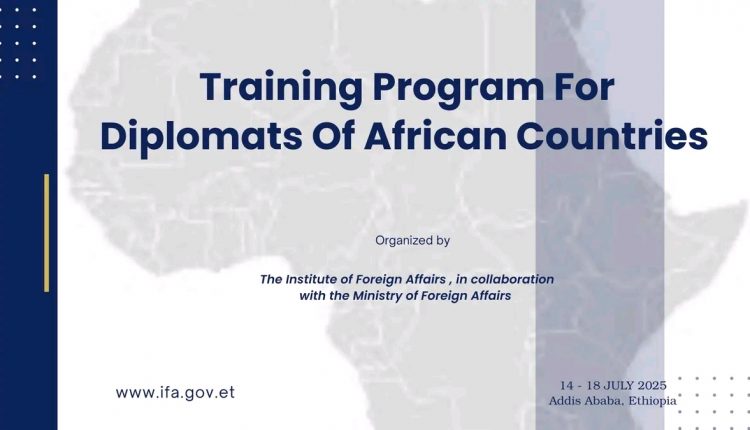MFA Ethiopia Launches Regional Diplomacy Training for Young East African Diplomats
Addis Ababa, July 14, 2025 (FMC) — Ethiopia’s Ministry of Foreign Affairs has launched a regional training program for young diplomats from six East African countries, aiming to strengthen regional cooperation and advance the Pan-African vision of unity and shared prosperity.
Organized by Ethiopia’s Institute of Foreign Affairs, the program brings together emerging diplomats from Somalia, Kenya, South Sudan, the Democratic Republic of Congo, Rwanda, and Uganda.
The training seeks to foster mutual understanding, enhance diplomatic skills, and equip participants to collaboratively address pressing regional challenges such as terrorism, forced migration, civil unrest, and illicit arms trafficking.
In his opening remarks, Adam Tesfaye, Chief of Staff at the Ministry of Foreign Affairs, emphasized the importance of collective action in tackling complex, transboundary issues.
“Our region faces multifaceted challenges that no single country can address alone,” he said. “This program is a vital step toward harnessing our collective wisdom and shared commitment to achieving our common goals.”
Adam also reaffirmed Ethiopia’s historic role in promoting regional dialogue and peace, highlighting that the country’s national development is deeply intertwined with the region’s stability and prosperity.
He stressed that Ethiopia’s ambition to become a model of prosperity by 2030 depends on enhanced regional integration and cooperation.
The initiative aims to deepen ties among East African nations, create platforms for collaborative action, foster constructive engagement within the Horn of Africa, and support diplomats in advancing shared regional interests on the global stage.
Describing Addis Ababa as the “diplomatic capital of Africa,” Adam expressed confidence that the relationships and knowledge developed during the training will significantly contribute to long-term regional peace and development.
Providing historical context, Professor Brook Hailu of Addis Ababa University delivered a keynote address on the evolution of Pan-Africanism.
He traced the movement from its early diasporic roots to the founding of the Organization of African Unity (OAU) in Addis Ababa in 1963, and its successor, the African Union (AU), established in 2002.
Professor Brook characterized Pan-Africanism as an ongoing struggle for the continent’s unity, sovereignty, and development.
Drawing from his diplomatic experience, including his tenure as Deputy Ambassador to the United Nations, he urged participants to see themselves as bridge-builders—facilitating dialogue, promoting collaboration, and advancing Africa’s shared vision of peace, prosperity, and global relevance.
The training program was officially declared open, marking a significant milestone in fostering regional diplomatic engagement and cooperation across East Africa.

